LRJJ’s First Week of E-learning: Exceeding Expectations
Sometimes it just takes a little nudge for things to get moving. In our case, we got a massive push due to COVID-19, and took our courses online for the first time in our college’s history.
On March 9, 2020, all 32 of our faculty logged into their Zoom accounts and began teaching the first of 308 hospitality management classes for the week.
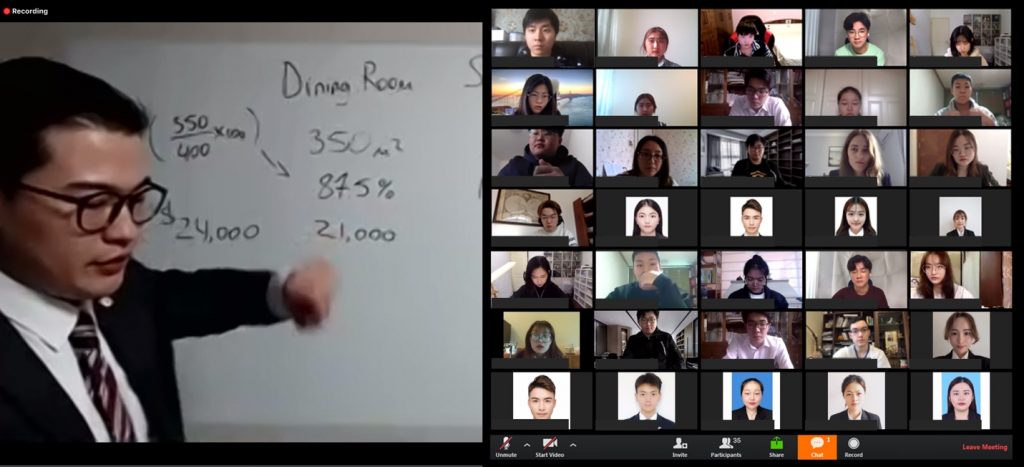
Lecturer Kamil Suleyev is currently teaching his Hospitality Accounting class online
Setting up the classroom at home
It seems that in hospitality, as in life, ample preparation makes the difference.
Trish Stephenson, a lecturer at LRJJ, mentions that “teachers being extremely organized and systematic in their planning” was essential to finding the right approach to get learning materials, activities, and resources to the students.
As the move to online instruction was unexpected, teachers focused on adapting syllabi, and quickly learned how to use Zoom’s many different features to keep the virtual classroom conducive, with many employing the use of green screens and multiple cameras to simulate a real-life classroom while at home.
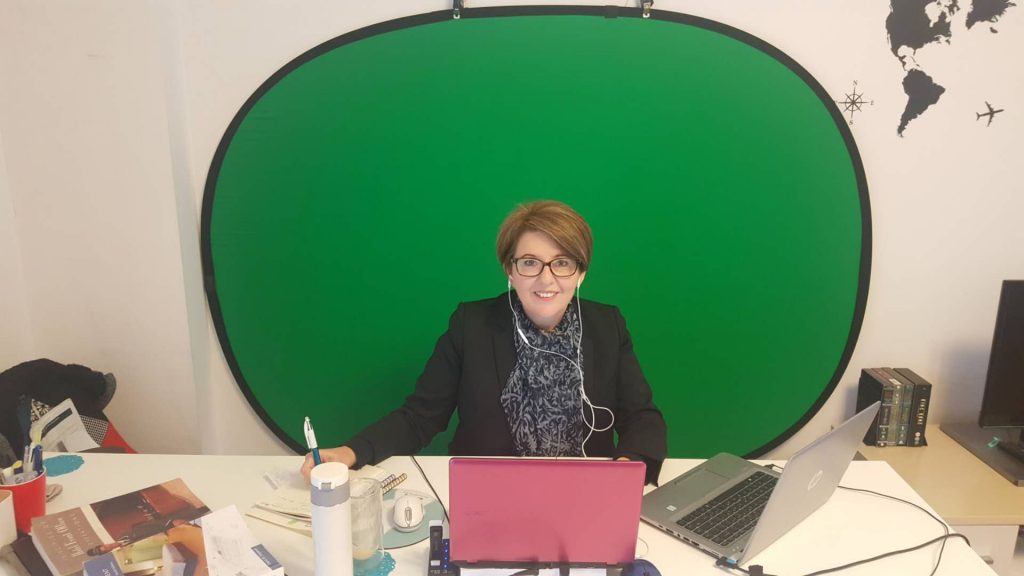
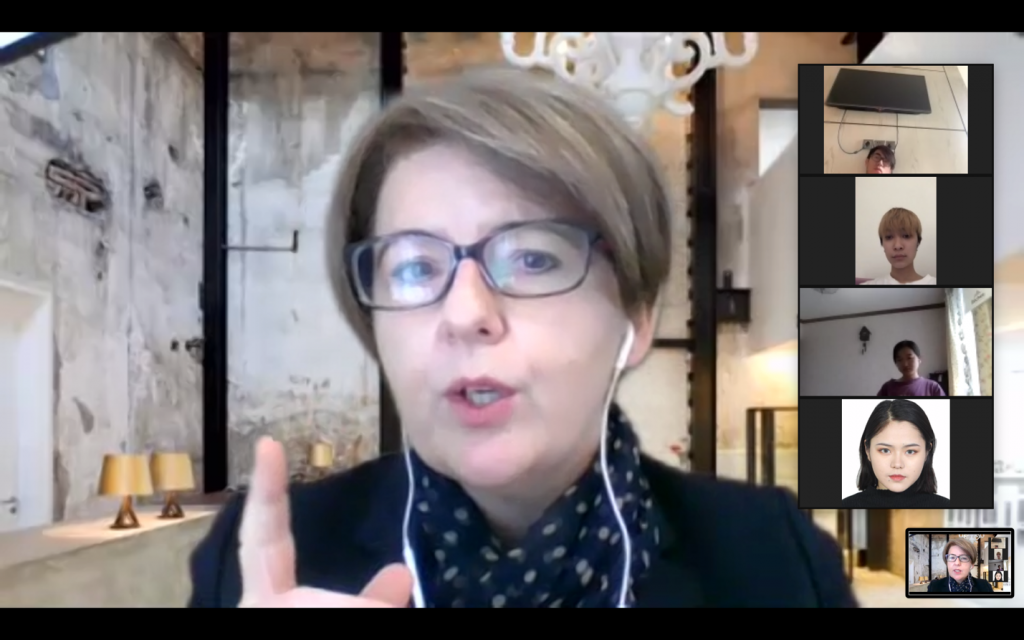
Trish uses a green screen to include a virtual background in her video stream
For Trish and many of our colleagues, the shift from offline to online classrooms was easier than what most expected. She adds that one of the positive lessons from the virtual classrooms was seeing how “students like using technology, and how they have been very adaptable and quick to pick up techniques.”
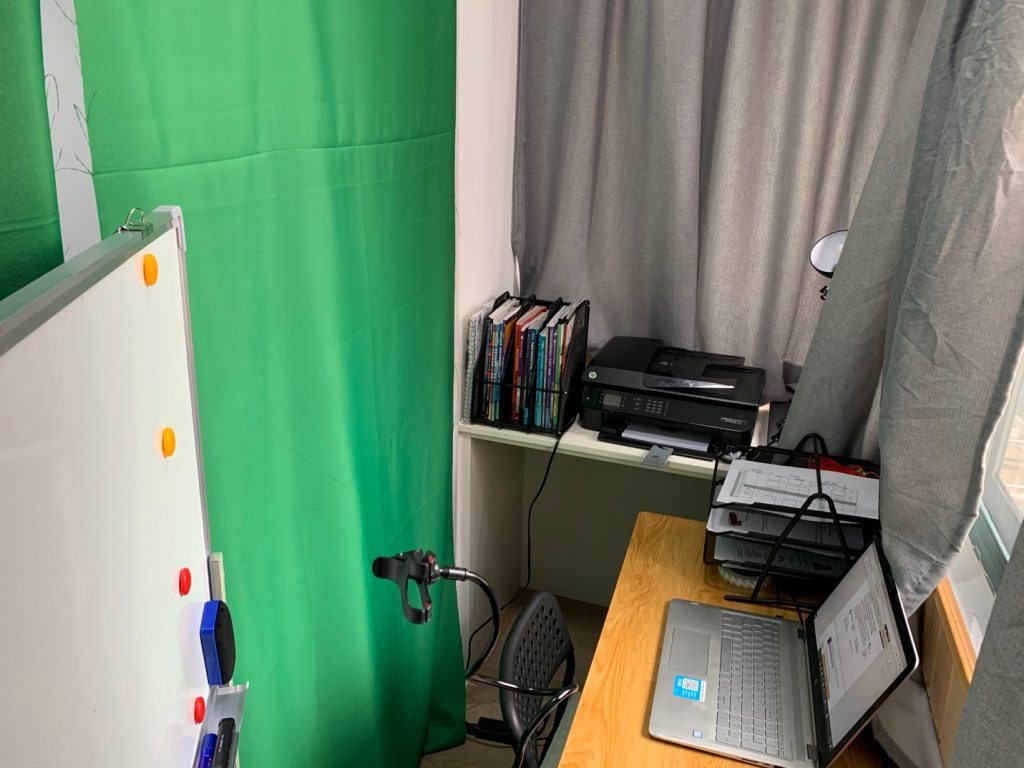
Lecturer Ernest Ingram uses a multi-camera set-up that allows him to shift between
lecture and board work
Transferring Offline to Online
Despite the advantages technology brings, a main challenge faced by the lecturers is how to adapt our craft-based approach online.
Instructors of the Practical Program, an introductory set of hands-on courses taught to first year students, focused on imparting theory through workshop. This was enhanced with the use of pre-recorded demonstration videos to equip students with the necessary knowledge and skills to jumpstart their education when school reopens.
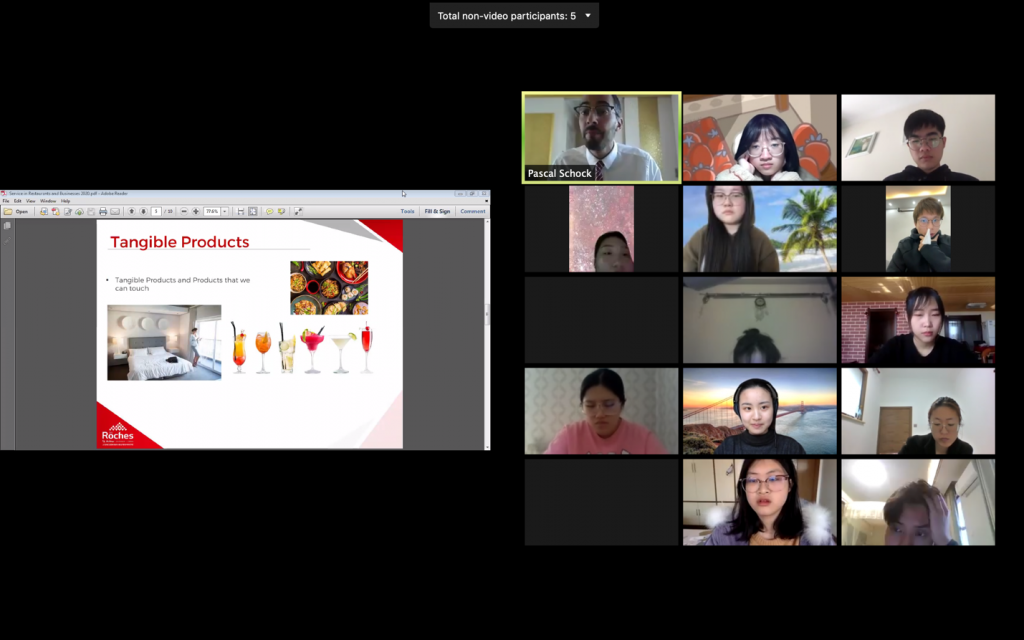
HM1 students learn the basics of Service with F&B Senior Instructor Pascal Schock in an online workshop
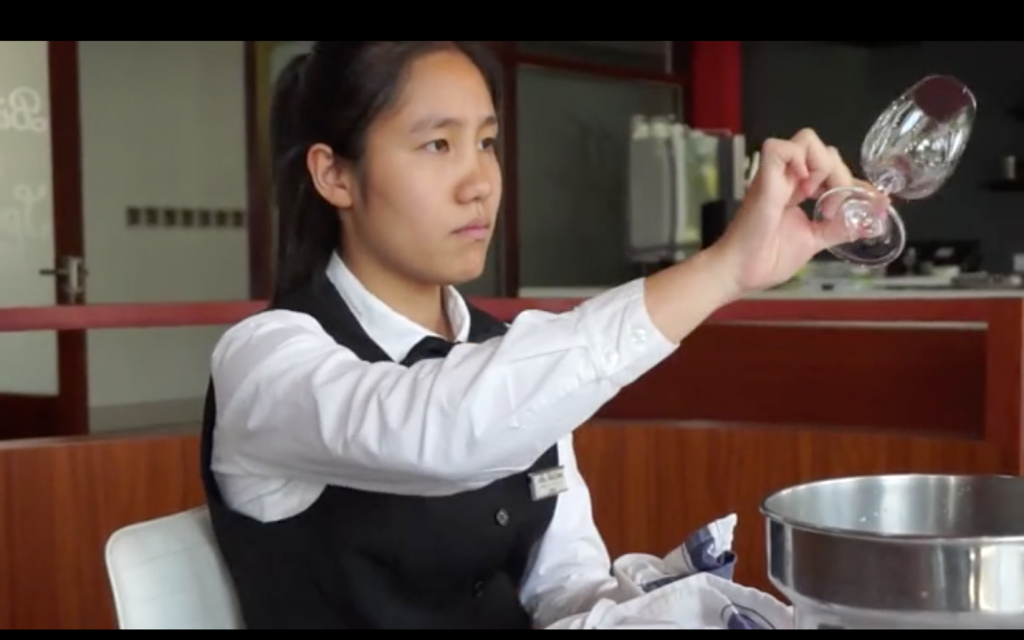
Demonstration videos like this one on glass cleaning prepare students for their practical studies when school reopens
Teachers of theoretical courses such as Hospitality Facilities Management and Hospitality Accounting maximized the use of Zoom features such as breakout rooms and screen sharing to encourage feedback, group work, and participation.
“I think that I like that it gives students the opportunity to be more hands on in their learning. The options to annotate as I’m speaking, to screen share their work, among many other features, have made the class a lot more interesting”, lecturer Ernest Ingram shares.
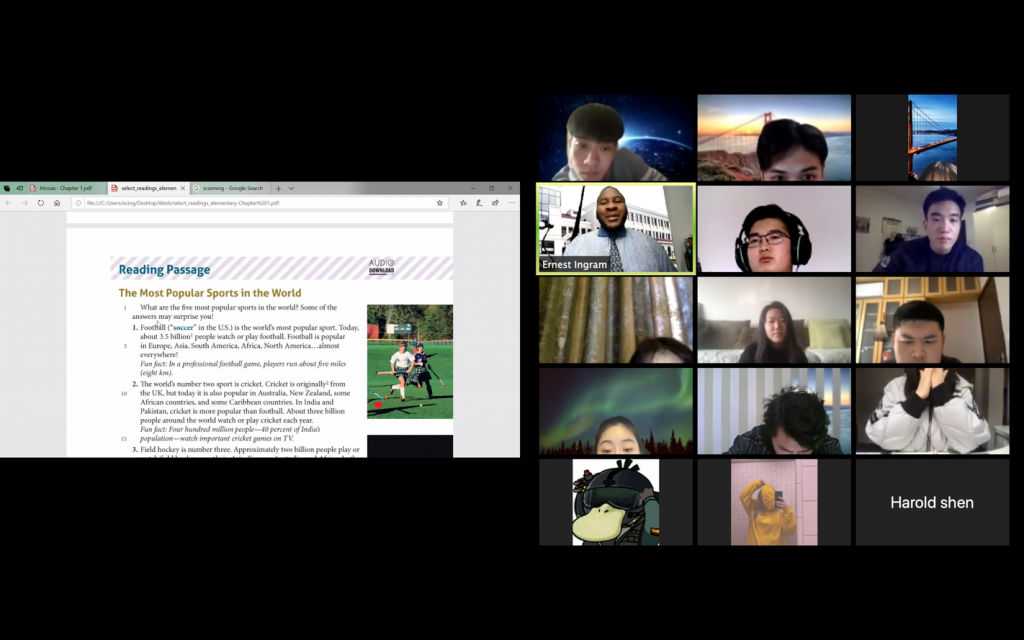
Ernest currently teaches his English courses to Hospitality Preparation Program classes online
Lecturer Ajaya Shakya recognizes the “windmill opportunity” brought about by the school’s foray into online. By recording short videos of his classes and sending it to the students, he says that it “gives the chance for students with bad connections to go back to the lecture and revise the course.”
Lecturer Lin Zhang shares how her own experience teaching online has been positive so far, but reiterates the need for teachers to collect feedback and adapt accordingly, “It is a very new experience for both teachers and students. We are actively collecting feedback from students and also searching for solutions to the questions students have regarding the live lecturing quality.”
Keeping the Focus
One change LRJJ did in its virtual classes is to reduce class periods from 50 to 30 minutes in order to help students stay focused.
Lecturer Kamil Suleyev notes that while the shortened format is challenging, he has found simple ways to make it reach full potential by being more efficient in taking attendance and prepping his board work. He says despite the short periods, being online still allows “active students to contribute to discussions while students who prefer to go through the material at their own pace have the chance to do so, because of the ease of the digital tools and file sharing.”
For students like Yoki (HM2), having shorter classes has helped her concentrate more intently on her lessons, “For me, I find that though online lessons are shorter, concise, and require more self-studying. Since I am studying at home, I feel that there are less distractions, so sometimes I find myself being more efficient than usual.”
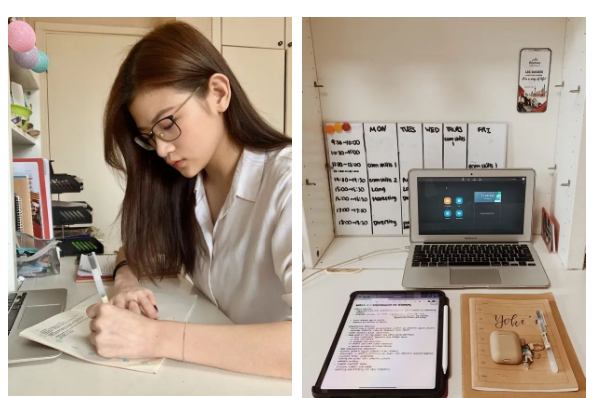
Yoki uses a whiteboard calendar to remind her of her online class schedules
Wendy (HM4) shares her own tips on how to stay focused, “I tend to turn off my phone when I’m in class so that I won’t get distracted, unless it’s necessary for me to use it.”
An active, interim solution
Fienly, an HM4 student currently in her hometown in Indonesia, shares her initial reluctance to do online classes.
“In the beginning, I thought it was a program that was not going to work out. But after trying it out myself, I am completely okay with it. I like the online courses because they are very efficient in some way. I can join the class following the schedule given as well as do other work at home,” she shares.
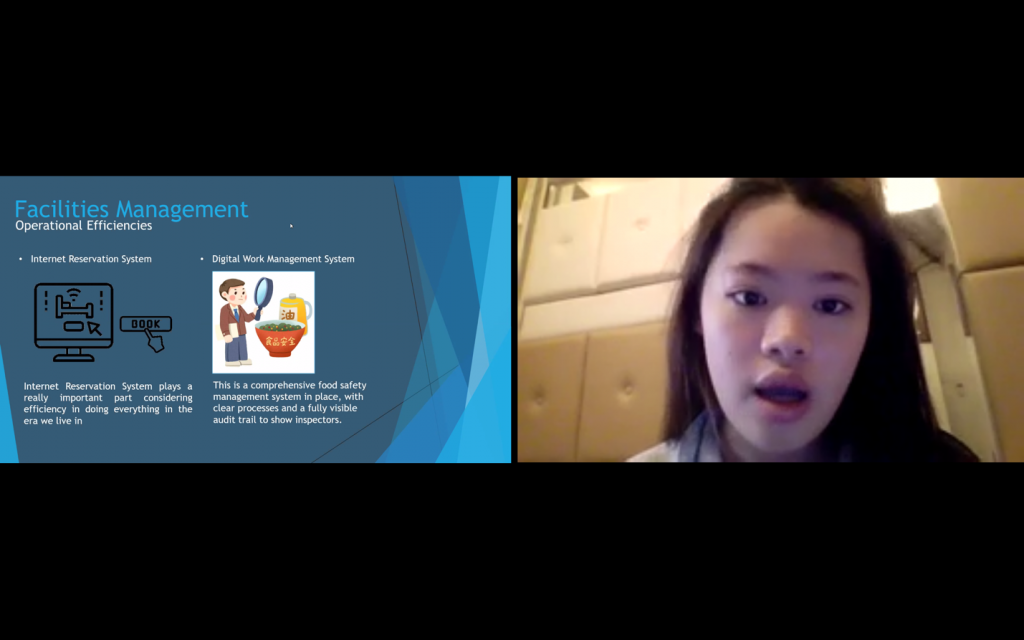
Fienly discusses her group’s submission to her class
Her positivity towards the online courses is shared by Wendy, “because it’s the first time that I am attending an online class, I actually think it’s an interesting experience. We are learning things from a different environment, not from our usual classroom environment”.
While the circumstances in trying out virtual classes at the college could have been better, we are thankful for the interesting lessons and learning opportunities this “special period” brings.


